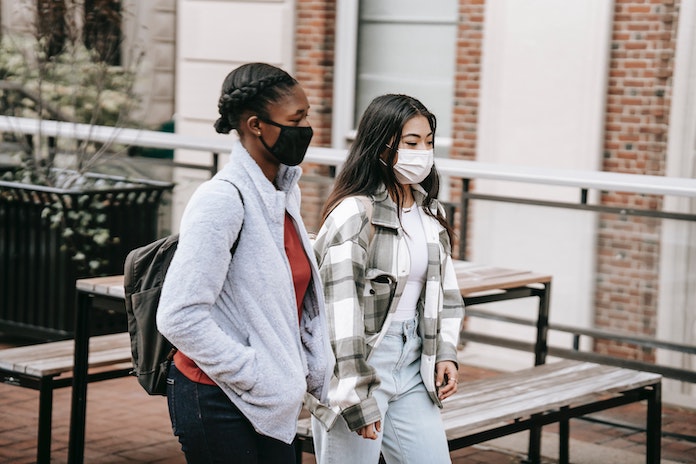For the past two years, researchers have been studying the academic and psychological effects of the pandemic on students. As they begin to compile the data, the findings are not surprising to parents and educators who have seen firsthand large learning losses and mental health concerns among children and adolescents.
UNFINISHED LEARNING: LOOKING AT THE DATA
In early September, the Associated Press reported that students who were in elementary school during the pandemic are significantly behind based on an analysis of test scores in reading and math by NWEA. The delay in reading and math has put an added strain on teachers and specialists in upper grades, who are not used to supporting such a large number of students in need of remedial help. For example, middle and high schools are not staffed with the same type of reading specialists as elementary schools who assist students in core skills like phonics. The pressure to bring these students up to speed as they progress into upper grade levels is increasing.
The reports of learning loss were not unexpected, but the final results are still staggering. A new analysis by the National Assessment of Educational Progress (NEAP) found that the average student lost more than half a school year of learning in math and nearly a quarter of a school year in reading, and the outcomes are even more grim for students of color and low-income students. These drops are statistically larger than students who faced classroom interruption from natural disasters like Hurricane Katrina evacuees.
While U.S. students face an uphill battle in recouping losses in learning, a 2022 study from the Annenberg Institute at Brown University brought some hope. The ground cannot be made up solely in the classroom, as teachers cannot expect to cover 150% of content over the course of several years. However, other interventions have been positive, with one-on-one tutoring having the biggest positive effect on reversing the pandemic academic drops.

Academic Tutoring
Our tutors offer customized tutoring designed to fit the needs of each student.
TIME MANAGEMENT CHALLENGES
As the classroom shifted online and activities were limited or canceled, students often had more time on their hands. However, the pandemic highlighted the role that schools play in teaching time management best practices and organization skills. Bells, routines, schedules, and even reminders from staff fell to the wayside, and students struggled to manage their time and complete tasks.
Emily Rinkema and Stan Williams, authors of The Standards-Based Classroom: Making Learning the Goal, noted that this is likely due to the fact that good time management is taught in the classroom. In addition to set schedules and reminders, it is modeled by teachers through setting small goals in completing larger projects. The frustration that administrators, teachers, and parents felt towards students who were unable to complete tasks on time was usually met with consequences rather than the recognition that students need support in developing executive functioning skills.

Executive Functioning Tutoring & ADHD Support
Guiding students in grades 4-12 to their full potential utilizing proven strategies & methods.
MENTAL HEALTH CHALLENGES
As the 2021-2022 school year continued, educators across the country, noticed increased incidences of children showing signs of mental health issues. By the time the holidays came around, it wasn’t surprising that U.S. Surgeon General Vivek Murthy declared a mental health crisis among adolescents, stating that, “the COVID-19 pandemic further altered their experiences at home, school, and in the community, and the effect on their mental health has been devastating.”
This evidence became more documented in subsequent years, and in January 2023, the National Institute of Mental Health (NIMH) released studies from a finding evaluating 163 adolescents (age 13-17) before and after the pandemic. Dr. Ian H. Gottleib and his team found that:
The two groups differed significantly in both their mental health and brain development. Compared to the pre-pandemic group, adolescents assessed after the pandemic shutdowns reported more symptoms of anxiety and depression and greater internalizing problems. Their brains showed thinning of the cortex, which helps execute mental processes like planning and self-control, and reduced volume in the hippocampus and amygdala, which are involved in accessing memories and regulating responses to fear and stress, respectively.
With this in mind, the anecdotal stories from educators and parents calling current adolescents “less resilient,” “more anxious,” and “not as socially developed,” are unsurprising. While it is widely known that healthy peer relationships strengthen adolescent mental health, Sophia Garbarino, Clare Brady, and Brady Nelson, Ph.D. noted that the impact of COVID-19 on the development of those relationships created more depression and anxiety among some students, which educators and parents dealt with on the front lines as teens returned to school.
PANDEMIC EFFECTS ON STUDENTS: TAKE-AWAYS
As we move into this post-COVID-19 era of education, it’s important to remember that some students are still struggling to catch up academically, emotionally, mentally, and socially from the pandemic. Nearly every student in the U.S. faced school disruption that resulted in learning loss during the pandemic, resulting in not just lower average testing, but also loss of executive-functioning skills that are traditionally taught in school through schedules and scaffolding. For some, their brains physically changed during the pandemic, making it hard to regulate emotions or behavior. For others, the detachment from peers at this critical stage of development (where adolescents value peer responses over most others) affected their social development. As we continue to work with adolescents who were affected by the pandemic, it is important to have grace and patience and seek appropriate interventions for academic, executive functioning, and mental health challenges to set your student up for success.
___
Our mission at Top Tier Admissions is to provide comprehensive support, guidance, and resources to students and families navigating the college admissions process. We prioritize teen mental health and work towards alleviating the stress and pressures associated with this process, empowering students to make informed decisions, nurturing their authentic love of learning, and encouraging academic achievement.
This summer, Top Tier Admissions sat down with mental health experts to discuss college admissions as it relates to teen mental health:
See our two-part blog series with Dr. Dana Dorfman: “How the College Admissions Process Affects Family Relationships,” and “How to Manage College Admissions Anxiety” and our interview with teen coaching expert, Will Elliott (@coachingwithwill): “Empowering Teens with Confidence in College Admissions.”
- Feeder Schools: The Hidden Truth - February 29, 2024
- Top Humanities/Social Science Contests to Boost Your Ivy Odds - January 23, 2024
- Top STEM Contests to Boost Your Ivy Odds - January 17, 2024


